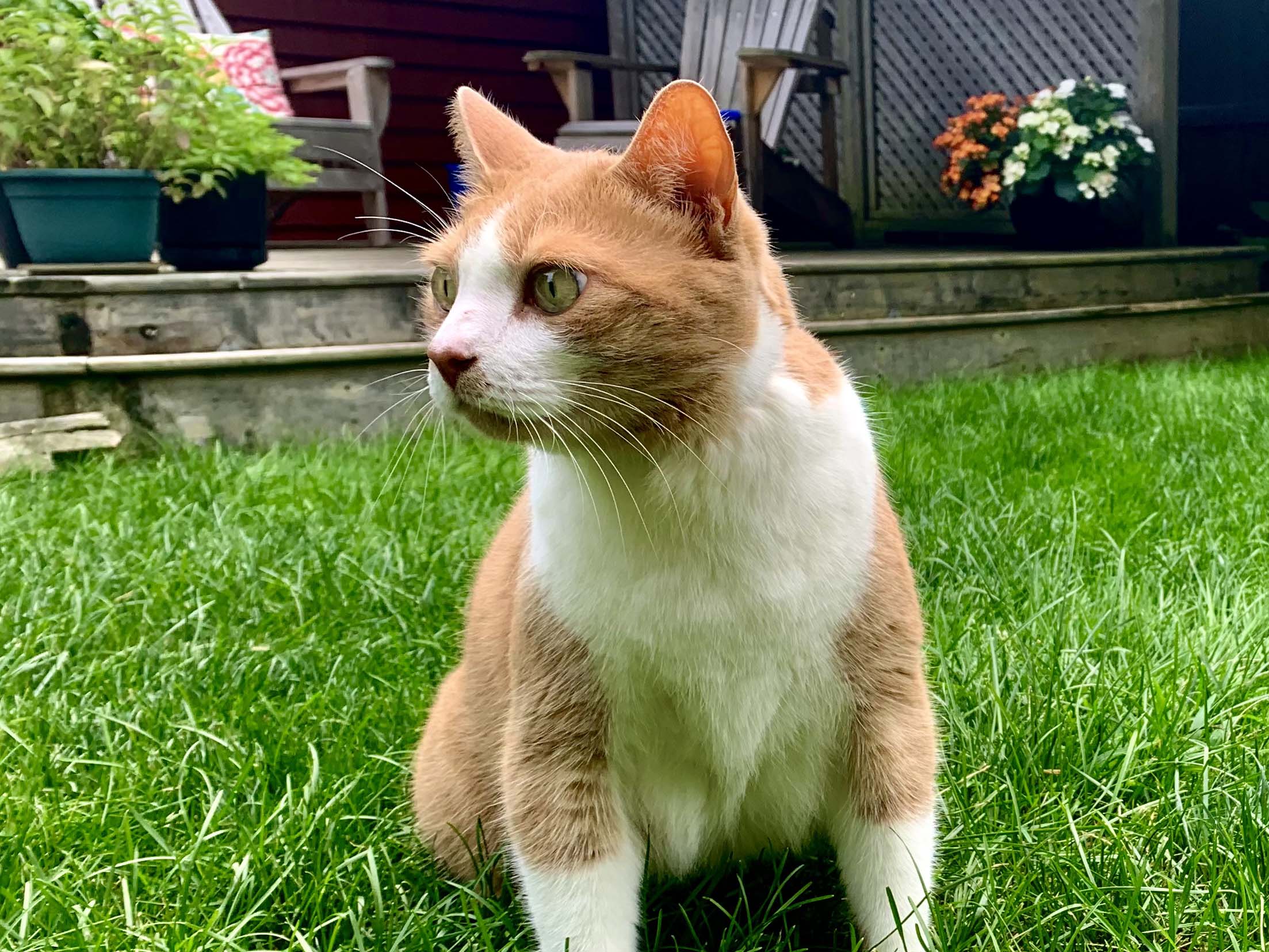Of time, teaching, and a cat named Duncan

Duncan. Photo: Submitted
Over the summer, I spent a good deal of time with a cat named Duncan. To be clear, the cat, a standoffish orange Tabby, was not mine. Rather, he belongs—as much as a cat can belong to anyone—to my daughter. Yet, for reasons known only to the cat, he likes to hang around me.
I guess there’s no accounting for taste in a cat.
Anyway, on most afternoons this summer, Duncan the Cat and I would sit on my back deck and enjoy the warmth and the sunshine. Typically, I would read a book, with a nice cold drink at my elbow, and he would sit, sphinx-like, somewhere in the centre of the lawn, observing the world for great lengths of time.
I read some wonderful books during this period: biographies of Lincoln and FDR, a reread of Sir Gawain and the Green Knight and The Old Man and the Sea, and as happenstance had it, an engaging little book about time management, though really it was a book about the fallacy of time management. And as I playfully pondered the posited ideas therein and periodically peered out at Duncan, I came to the curious conclusion that the cat and I lived in entirely different dimensions of time.
Allow me some time to explain.
I live my life in a consciously constructed context of time, which was nicely articulated in the book like this: if we measured the entire history of human civilization, from the ancient Sumerians until the present day, this period would comprise little more than 310,000 weeks of time. More striking, if we each lived our lives to an expected average lifespan, we would find we only had a rather humbling 4,000 weeks of time. Which means, given my vintage, and if all goes well, meaning I consistently avoid moving buses and falling trees, I have roughly 1,000 weeks left.
Making this brief allocation of time all the more complex is the reality that I measure and judge the worth of my time through a wide variety of qualifiers. I have good times and bad times and productive times. I have quality time and wasted time. I have social time, down time, and work time. I save time. I spend time. I lose time and find time. I even take time for playtime and bedtime, when time allows.
There is also chronological time, absolute time, and relative time. And there is parsley, sage, rosemary, and thyme, which has absolutely nothing to do with my point, but I rather enjoy the play on words. Anyway, all these qualifiers of time seem singularly designed to ensure that I invariably feel I have not used my time well, which in turn creates an unceasing sense of consternation, which then presses me into a never-ending cycle of, well, reorganizing my time.
By contrast, Duncan the Cat, sitting statue-like in the grass, experiences his time differently. He lives his life by simply inhabiting moments of time, whether he is sleeping or eating, or for reasons known only to the cat, leaping up to bite me on the backside, which he is periodically inclined to do. My point here is that Duncan the Cat inhabits time without context. His time lays no claim to the past or the future, meaning I suppose, he experiences no time at all. So what am I getting at? I’m not quite sure yet.
Just allow me a little more time.
Consider that we each have had, early in our few thousand weeks, experienced time not unlike Duncan the Cat’s. Remember those lazy days of summer when we were kids? We were so present in those moments, swimming in lakes or riding on bikes or playing baseball with friends, that the days seemed to last forever, or even seemed to stand still. It was only when we grew to adulthood, and blithely accepted the constructed context and qualifiers for time, that our capacity to experience and embrace great lengths of timelessness seemed to wane and wither.
Or did it?
When I think about it now, many of us still engage in certain activities where we find hints of that timelessness. I can still lose a sense of time when I write or read or run. And now that I really think about it, the activity where I find this timelessness happens most for me is in the act of teaching. Though it doesn’t happen every day, I do find that when my students and I are swept up in a compelling moment of learning, which often involves creating and exploring some shared experience—time starts to slow down and even occasionally even stops, ending only when we are jarred back into qualified time by sound of the school bell.
All this has me thinking more deliberately about how I want to spend my time. Maybe it’s the pandemic. Or maybe it’s knowing that a thousand weeks is modest indeed. And as I consider the start of a new school year and consider what I might say to my teachers as they prepare to spend their time with their students, perhaps it’s worth provoking in them a deeper pondering of time, of its constructed context and qualifiers, to remind them perhaps of what is most compelling and important about their chosen calling and craft. Or perhaps I should encourage them to consciously experience their time more like Duncan the Cat’s, without periodically jumping up to bite me on the backside, of course.
Or maybe I should give that thought a little more time.
This story was originally published in Halifax Magazine.















